Introduction
Managed firewall services are revolutionizing the way organizations protect their digital assets and streamline their operational efficiencies. By leveraging the expertise of specialized third-party providers, companies can ensure their network security is robust without diverting attention away from their core business functions. This article explores the key features, benefits, and advancements in managed firewall services, highlighting their importance in enhancing security, compliance with regulatory requirements, and optimizing cost-effectiveness and resource savings.
Through real-world case studies and success stories, the article demonstrates the value of choosing the right managed firewall provider and offers best practices for implementing these services effectively. As the cybersecurity landscape evolves, the need for managed firewall services becomes increasingly critical to maintaining a secure and resilient network infrastructure.
Why Choose Managed Firewall Services
Managed firewall services are revolutionizing the way organizations protect their digital assets and streamline their operational efficiencies. By leveraging the expertise of specialized third-party providers, companies can now ensure their network security is robust without diverting attention away from their core business functions. A prime example of this is the global hospitality leader, IHG Hotels & Resorts, which transitioned from a traditional network to a managed software-defined wide area network (SD-WAN) solution courtesy of Fortinet. This move is poised to result in substantial cost savings, predominantly from the integration of networking and security operations and improved network management.
The beauty of such managed firewall solutions is their ability to provide a comprehensive, high-level view of the security infrastructure, network bandwidth, and more. They offer a seamless, integrated approach with minimal downtime for security devices, such as next-generation firewalls and endpoint protection tools. The efficiency gains are notable; what once took an entire day to change a firewall policy across numerous devices can now be completed in mere minutes. This operational speed and integration significantly reduces the need to expand security teams, often sparing the addition of one to two staff members.
Moreover, the correlation of network and endpoint intelligence empowers even small security teams to effectively identify potential threats across a vast array of devices and employees. Such interconnectedness instills confidence not only in the IT department but also in the board and management, ultimately safeguarding customers and the business as a whole.
The value of managed firewall services is underscored by their growing adoption in North America, which leads other regions. These services are pivotal for businesses aiming to optimize IT operations, offering advanced technologies and expertise without the overhead of in-house management. With the capability to remotely manage IT infrastructure, including network monitoring, cybersecurity, and cloud management, organizations are able to focus on what they do best while enjoying enhanced efficiency, scalability, and cost-effectiveness.
As the cybersecurity landscape evolves, the need for real-time defense responses becomes more critical. Managed firewall services address this by providing rapid response mechanisms to threats, reducing the window of potential damage. Such services are indispensable in a modern, distributed workforce where employees work from multiple locations on various devices, necessitating a dynamic and adaptive security posture.
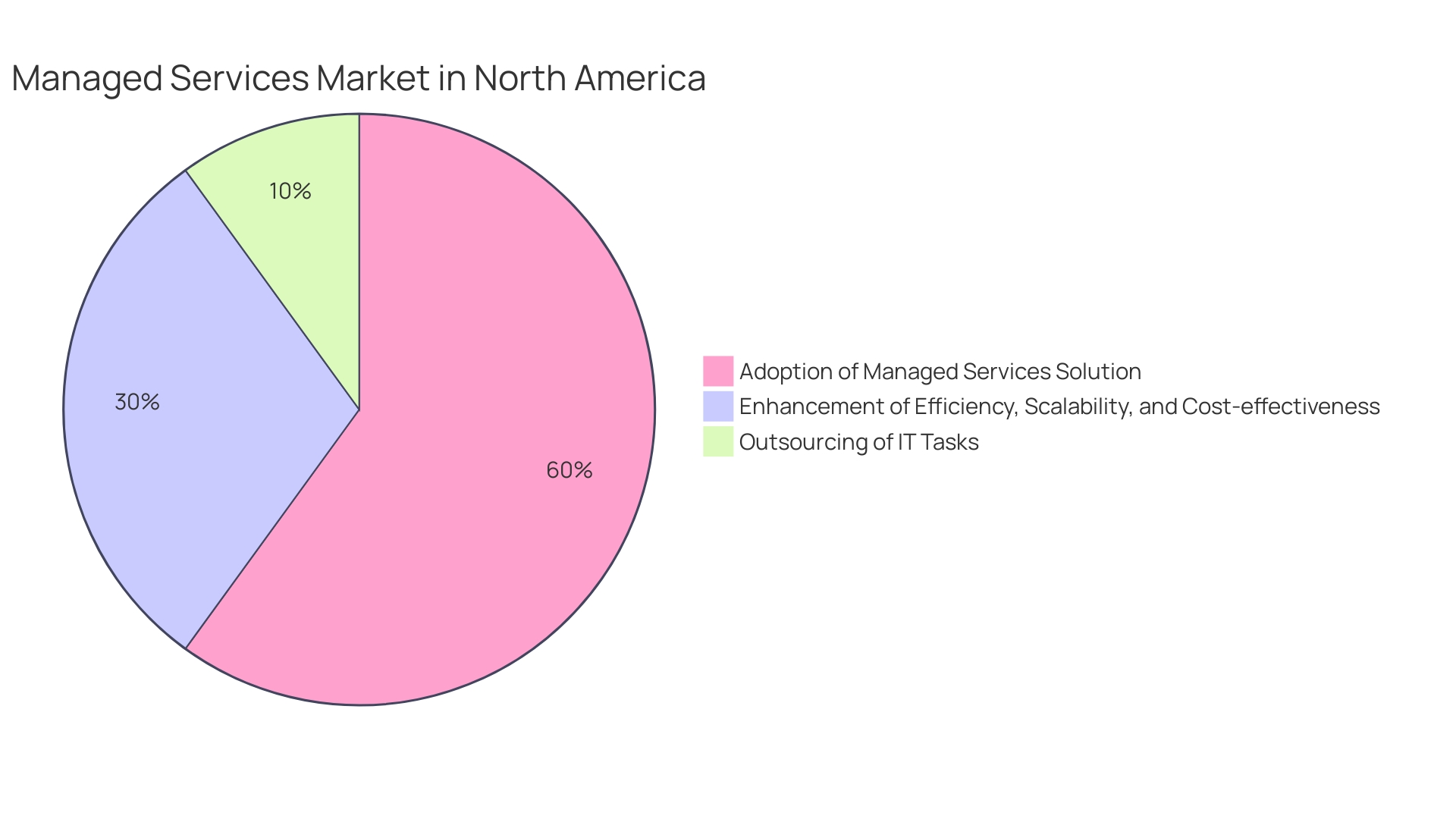
Key Features of Managed Firewall Services
Organizations today face a myriad of cybersecurity threats that require robust defenses. Managed firewall services offer a comprehensive suite of features that are crucial for protecting an organization's digital assets. Key among these features is advanced threat detection and prevention, which includes a database of attack signatures to match and detect known threats. Real-time monitoring and incident response are also essential, enabling system administrators to rapidly identify and mitigate potential breaches.
Regular security updates help ensure that protection measures keep pace with evolving cyber threats. System administrators are supported by user-friendly interfaces that simplify the management of security systems, even for those who may not be security experts. Furthermore, these managed services facilitate the efficient management of security policies across multiple devices, which can now be accomplished in minutes instead of hours or days.
Efficiency in security management is highlighted by the example of IHG Hotels & Resorts, which achieved significant cost savings by consolidating networking and security functions through a managed SD-WAN solution. This not only streamlined operations but also enhanced network security for their global enterprise.
In North America, managed services have become a strategic solution for businesses aiming to optimize their IT operations. The adoption of these services is notably high, with organizations leveraging them to achieve better efficiency, scalability, and cost-effectiveness. By outsourcing technical tasks, companies can concentrate on their core business activities while still benefiting from advanced technological capabilities.
The importance of managed firewall services is underscored by the increasing complexity of business environments. Intrusion Detection Systems (IDS) play a pivotal role by establishing secure lines of communication and safeguarding corporate data against unauthorized access. These systems generate alarms and can block malicious actors, preventing further unauthorized activity.
In this high-stakes cybersecurity landscape, it is clear that managed firewall services are not just an option but a necessity for organizations seeking to maintain a robust defense against cyber threats. The integration of these services provides a security posture that is both proactive and resilient, ready to confront the challenges of the digital age.
Benefits of Managed Firewall Services
The landscape of IT operations is evolving rapidly, and with it, the role of managed firewall services has become increasingly vital. For organizations looking to bolster their cybersecurity while optimizing operational efficiency, the adoption of managed firewall services presents a compelling proposition. North America is leading the charge in this domain, with a market study revealing that the region is poised to embrace these services to a greater extent than others. The integration of managed firewall services into business infrastructure offers multiple benefits, such as enhanced efficiency, scalability, and cost-effectiveness.
Outsourcing network monitoring, cybersecurity, cloud management, data storage, and technical support to specialized third-party providers allows businesses to concentrate on core competencies, tapping into advanced technologies and expertise. This strategic shift not only ensures consistent and reliable IT performance but also significantly reduces downtime, which is crucial for maintaining productivity in a demanding digital landscape.
The narrative surrounding managed services is further enriched by real-world examples, such as the case of Wowza customers who experienced unexpected cost surges due to acquisition-related price hikes. This scenario underscored the value of managed services, particularly for companies needing to deliver high-quality, real-time video content to a global audience. Transitioning from self-managed servers to a managed live-streaming service proved to be overwhelmingly positive, reinforcing the argument for managed services.
Amidst the rapid pace of cyber threats, organizations are also grappling with the challenge of misconfigurations and the subsequent exploitation of these vulnerabilities. The need for solutions that can deliver real-time responses to threats has never been more critical. Managed firewall services address this need, minimizing potential damage and offering a level of responsiveness that traditional security setups may lack.
Ultimately, the strategic adoption of managed services, including firewall management, is not just a trend but a transformational shift enabling businesses to leverage IT as a driver of innovation and growth. As such, companies can save thousands of hours on operations, refocusing their efforts on higher-level tasks and strategic initiatives.
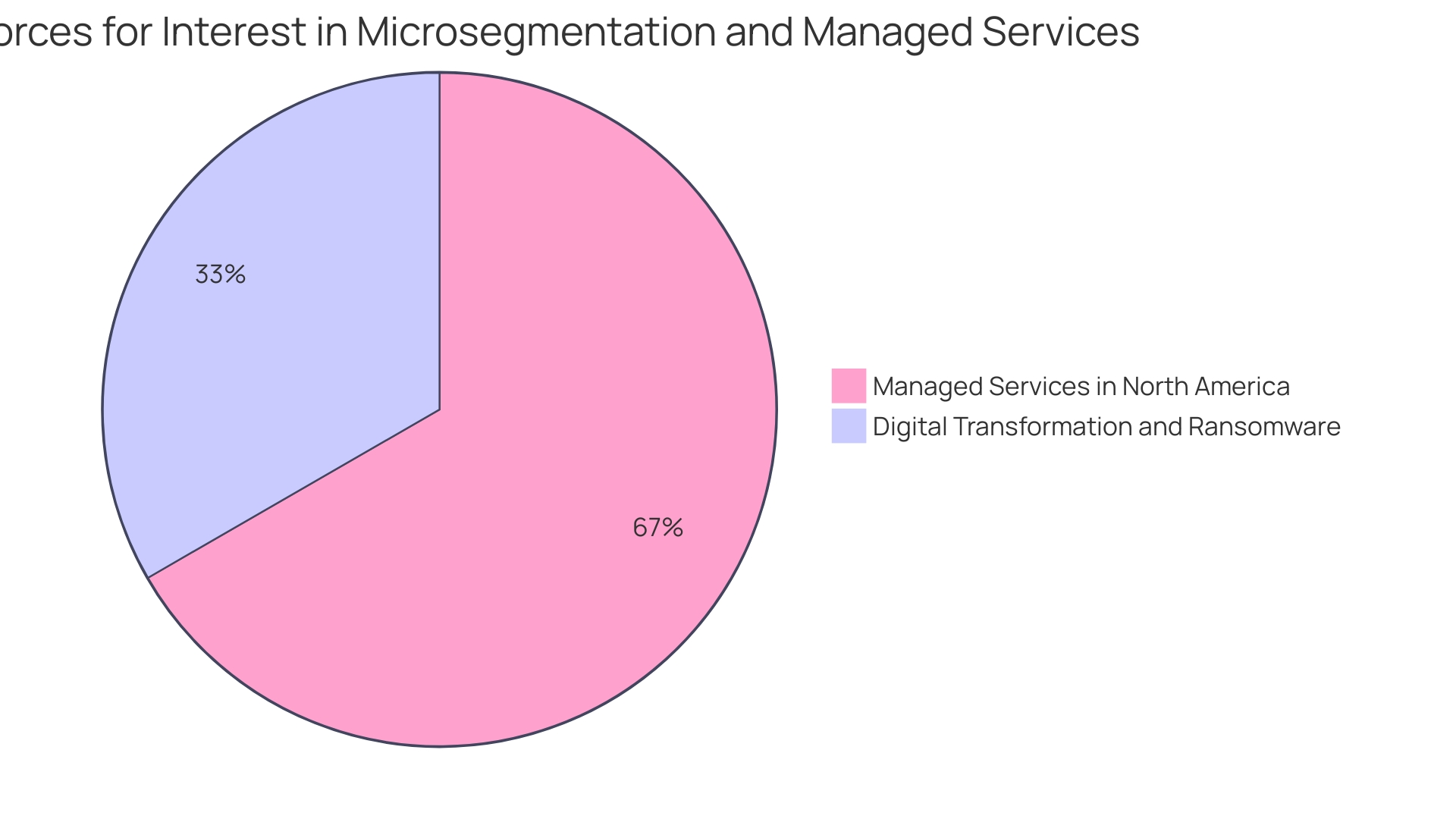
Enhanced Security and Threat Detection
Organizations across diverse sectors are recognizing the critical role managed firewall services play in safeguarding their digital assets. For instance, IHG Hotels & Resorts made a strategic move to upgrade its network with a managed software-defined wide area network (SD-WAN) solution from Fortinet. This transition is not just about keeping guests' WI-Fi secure but also about ensuring the integrity of systems like check-ins and key cards. The managed firewall services incorporated by IHG employ next-generation firewalls (NGFWs), which are instrumental in protecting their cloud-migrated systems against the onslaught of cyber threats.
The use of advanced security measures is a testament to the efficacy of managed firewall services in contemporary cybersecurity landscapes. With the capability to implement changes across numerous devices in a matter of minutes, these services offer a level of efficiency and response speed that traditional security measures struggle to match. Furthermore, the integrated approach of Fortinet solutions—where different security applications communicate with each other—exemplifies the robust threat detection and management capabilities that are critical for modern businesses. This not only streamlines security management but also provides a layer of defense that is both comprehensive and adaptable to evolving threats.
Recent events, such as the CrowdStrike incident, highlight the vulnerability of network infrastructures and the importance of employing strategies to protect against large-scale tech failures. The managed firewall services sector is responding to these challenges by providing solutions that mitigate the risks of misconfigurations—a leading cause of security breaches. By minimizing human error and managing the complexity inherent in these systems, managed firewall services are essential for organizations that must defend against rapidly executed cyber-attacks.
In a world where the workforce is increasingly distributed, and employees are accessing networks from various locations and devices, the need for robust network security is more pressing than ever. As quoted by security leaders, the main concerns are external hacking attempts, internal threats from employees, data theft, and malware that disrupts operations. A staggering 80% of enterprises acknowledge the need for improved IT security, reinforcing the demand for managed firewall services that prioritize access security and regular malware scanning.
In conclusion, the strategic implementation of managed firewall services offers not only improved security but also significant cost savings and operational efficiencies. As organizations continue to navigate the complexities of digital transformation, the adoption of these high-performance solutions is essential for maintaining a secure and resilient network infrastructure.
/7 Monitoring and Support
Managed firewall services have become a cornerstone for companies aiming to fortify their cybersecurity posture. These services are particularly vital in a landscape where digital threats are ever-evolving and downtime can have severe financial and reputational consequences. IHG Hotels & Resorts exemplifies this strategic shift towards enhanced security and efficiency. By implementing a managed SD-WAN solution, IHG not only expects substantial cost savings but also benefits from the convergence of networking and security functions, which streamlines management across global locations.
For organizations like IHG, the advantages of managed firewall services are multifold. They provide minimal downtime for critical security devices, enabling a small security team to manage a vast array of systems and endpoints efficiently. Such efficiency in security management means policy changes that once took a day can now be executed in minutes. Moreover, it negates the need for additional staffing, thereby optimizing operational costs.
The integration of network and endpoint intelligence is another key benefit, as it allows for a more precise identification of potential threats within large ecosystems of employees and devices. The interconnectedness of Fortinet solutions, for instance, provides a comprehensive security overview, instilling confidence in the board and management, and ultimately safeguarding customer trust.
Continuous monitoring, a feature of such managed services, acts as an early detection system against cyber threats. This real-time threat detection is crucial for preventing prolonged attacks and maintaining data integrity. For industrial producers, integrating Level 3 and Level 4 networking through continuous monitoring not only enhances visibility but also improves the efficiency of security management.
The importance of continuous monitoring cannot be overstated. It has evolved from a nice-to-have to a must-have, transitioning from periodic audits and manual checks to a system that provides real-time insights and proactive threat management. As the digital landscape becomes more complex, the need for such vigilant monitoring is paramount to stay ahead in today's fast-paced business environment.
Compliance with Regulatory Requirements
The integration of managed firewall services into organizational security frameworks is not merely a technical necessity but a strategic imperative, particularly in aligning with industry regulations and standards. For instance, global leaders such as IHG Hotels & Resorts have demonstrated the substantial benefits of deploying managed services like a software-defined wide area network (SD-WAN) from Fortinet. This solution merges networking and security functions, leading to cost savings and increased operational efficiencies. Such an approach not only enhances security but ensures compliance with industry mandates, as regular audits and compliance reports become streamlined processes.
The challenge of compliance is compounded by the modern, distributed workforce, where employees operate from diverse locations, using varied devices. This dispersion creates a complex security landscape that requires solutions capable of real-time threat response. Managed firewall services are critical in this environment as they minimize human error, tackle misconfigurations, and swiftly respond to cyber threats. According to statistics, 97% of companies are now implementing Zero Trust initiatives, recognizing the importance of identity-based access to protect sensitive resources. This marks a significant shift from the 16% in 2019, highlighting the escalating focus on robust security measures.
Moreover, the rapid migration of systems to the cloud, such as those experienced by Applied Systems, necessitates a re-evaluation of technology architectures. With large volumes of sensitive data to protect, the company underscores the need for agility and efficiency in its security approach. Managed service providers (MSPs) are pivotal in supporting such digital transformation, facing not only the complexities of technology but also the expectations of sophisticated threat protection. Insights from a survey of 700 MSP decision-makers reveal the challenges and growth opportunities they anticipate, emphasizing the evolving role and importance of managed services in ensuring compliance and security.
As the digital landscape evolves, so do the security and compliance requirements. Adopting managed firewall services is not just about bolstering defenses but about ensuring that the business can thrive in a landscape where cybersecurity is a critical determinant of success.
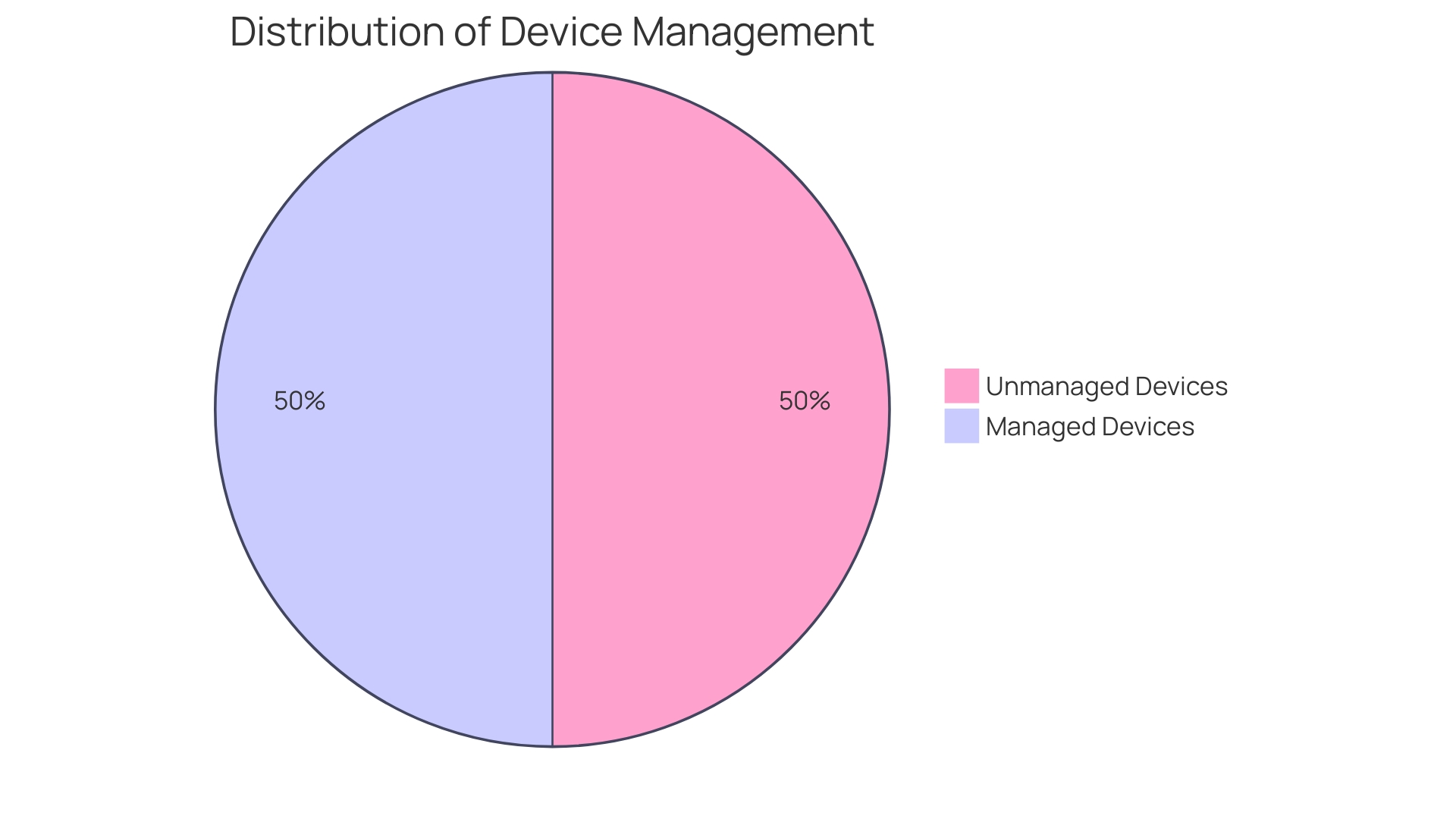
Automated Policy Management and Optimization
Firewall management is an intricate endeavor, demanding significant time and expertise to maintain an effective security posture. With the average firewall encompassing thousands of rules — some potentially obsolete or conflicting — the complexity becomes not only a burden but a severe security vulnerability. A staggering 58% of organizations manage over 1,000 rules, with certain entities juggling rules in the millions. Gartner has highlighted that nearly all firewall breaches through 2023 will be due to misconfigurations, accentuating the necessity for meticulous policy management.
Managed firewall services present an indispensable solution by automating the management and optimization of firewall policies. Such automation ensures continuous alignment with security protocols, significantly reducing the risks associated with manual configurations. The tight integration of solutions like those from Fortinet affirm their efficacy, as they facilitate seamless communication between applications, bolstering the security infrastructure.
This automation transcends mere policy updates; it streamlines the entire security management process, enabling changes across potentially hundreds of devices within minutes. This efficiency is not just a theoretical advantage but a practical one, as demonstrated by the Arizona Department of Homeland Security's partnership with CloudFlare. They've adopted a cloud-centric approach to safeguard a population of 7.5 million, showcasing the capacity of managed services to deliver robust security with minimal resource allocation.
In light of these developments, network and security leaders are urged to re-evaluate their firewall strategies. The traditional method of adding firewalls incrementally can lead to a disjointed and potentially insecure network. Instead, leveraging intelligent automation can result in a more cohesive and secure framework, as evidenced by a Forrester Research study. Organizations utilizing such smart automation have witnessed a 73% revenue growth in net present value and a 5.4% compound annual growth rate over three years.
In conclusion, the shift towards managed firewall services with automated policy management is not a luxury but a strategic imperative for organizations aiming to fortify their defenses against the ever-evolving threat landscape.
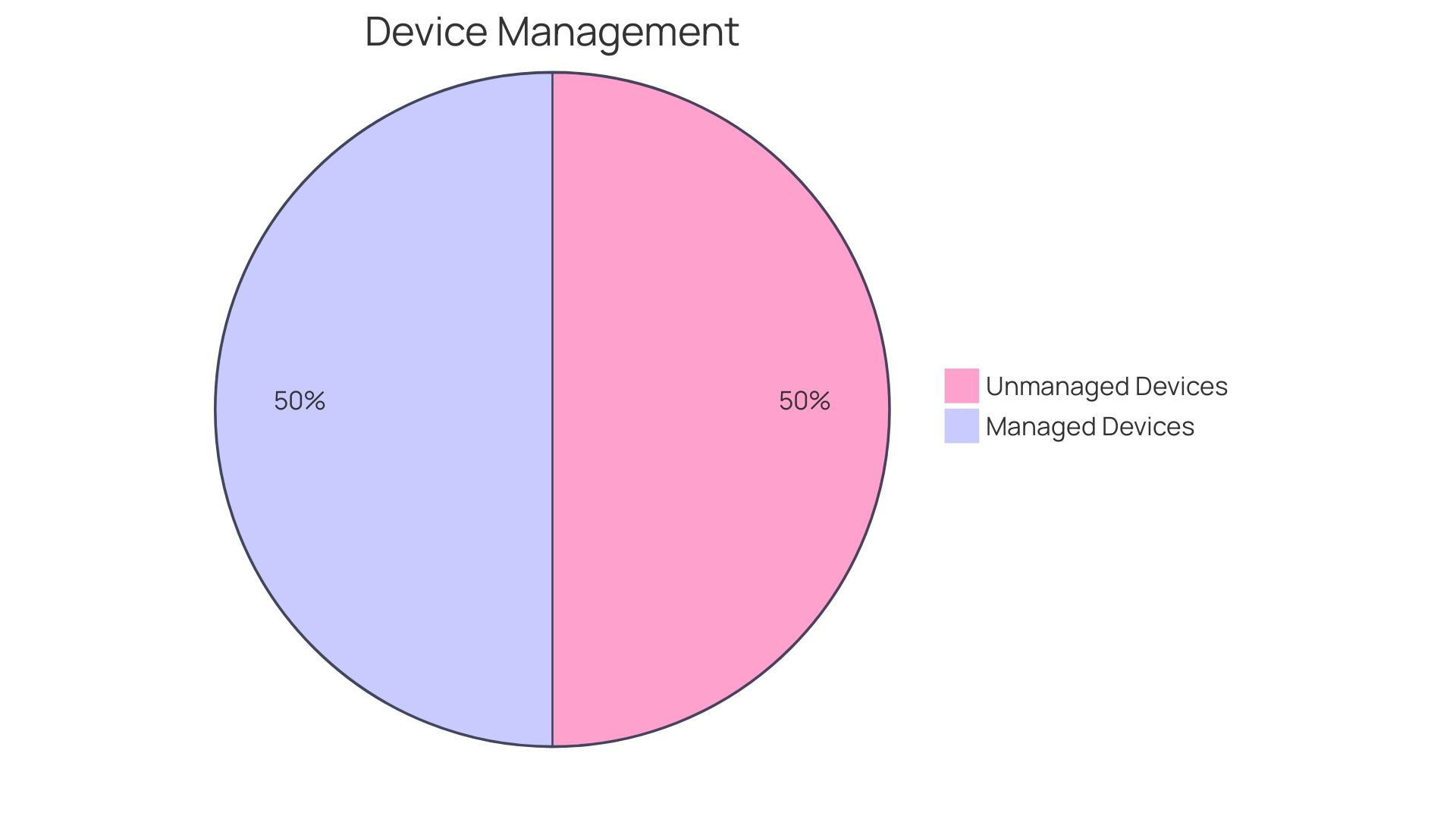
Cost-Effectiveness and Resource Savings
In the face of escalating costs and the need for heightened cybersecurity, managed firewall services have emerged as a beacon of efficiency and cost-effectiveness for organizations. The sharp increase in service fees experienced by Wowza customers following the company's acquisition starkly illustrates the volatility of self-managed technological solutions. Instead of incurring hefty and unpredictable expenses, organizations can adopt managed firewall services to achieve substantial economic benefits, as highlighted by Infoblox's report demonstrating an impressive average ROI of 334%. This not only includes a significant 75% boost in operational efficiency but also allows companies to operate with a smaller workforce—19% less—while achieving a 79% reduction in operational costs.
A compelling case for managed services is presented by a Ceeblue customer who transitioned from self-managed servers to Ceeblue's managed offerings, resulting in overwhelmingly positive outcomes. This shift underscores the strategic advantage of converging network, security, and cloud operations into a unified center, a move that 88% of successful hybrid multi-cloud enterprises have adopted through increased collaboration and aligned goals.
Furthermore, the rise in cyber threats necessitates a robust defense capable of responding in real-time. Traditional security setups often fall short, leading 80% of enterprises to acknowledge the need for improved IT security measures. Managed firewall services meet this critical requirement by offering an agile, real-time response to threats, effectively safeguarding against both external and internal threats, which concern nearly every CIO.
Managed services also offer the benefit of operational focus, allowing clients to save thousands of hours on routine tasks, thus reallocating resources to more strategic initiatives. This aligns with the current industry trend where market players, such as Palo Alto Networks, are broadening their service spectrum through strategic acquisitions to provide comprehensive security platforms that address emerging threats.
In summary, the adoption of managed firewall services equips organizations with the agility and cost-efficiency necessary to navigate the evolving digital landscape, ensuring that they remain competitive while securing their operations against a myriad of cyber threats.
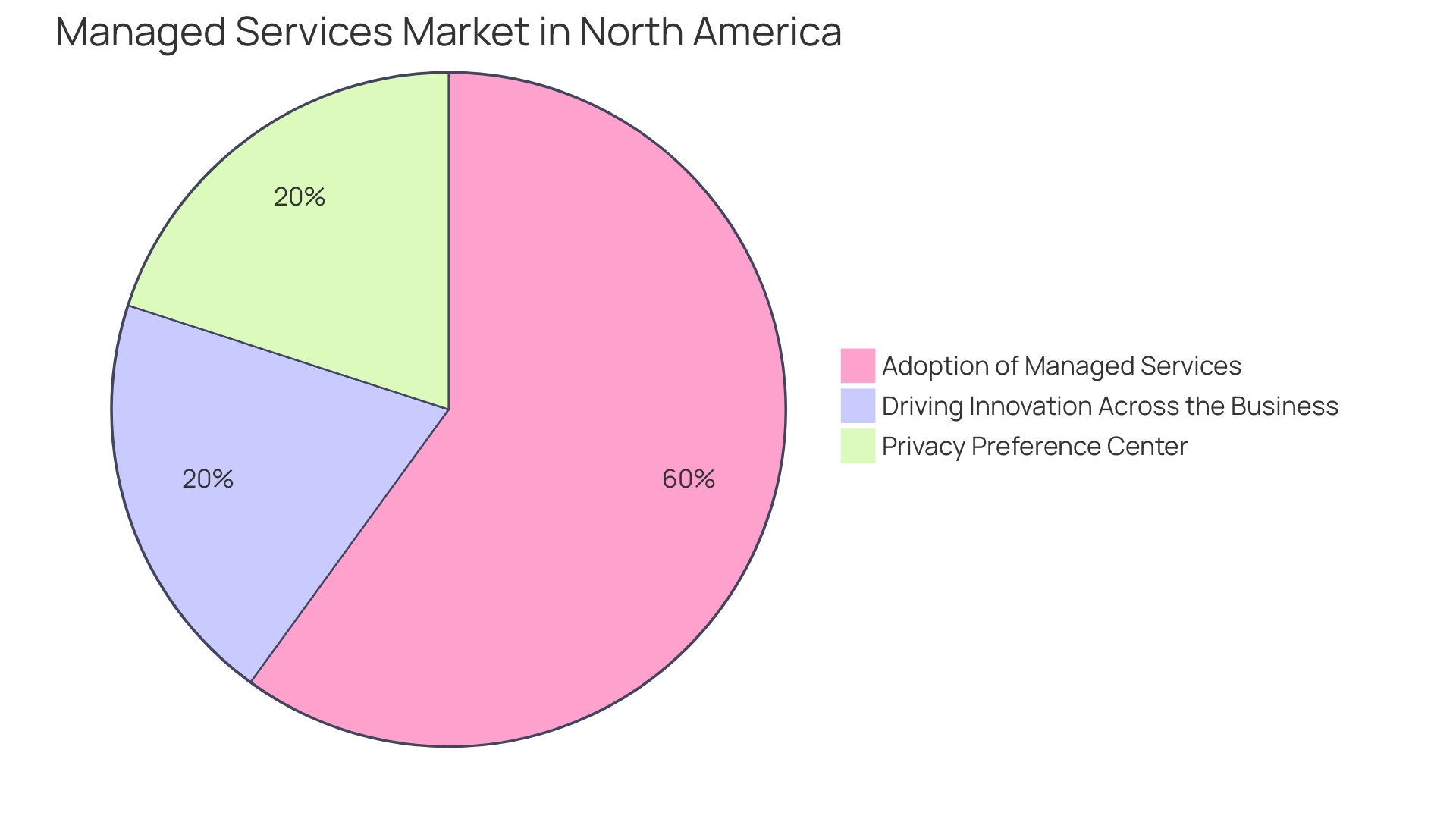
Increased Productivity and Focus on Core Business
Managed firewall services offer a compelling advantage for organizations seeking to enhance their cybersecurity posture while optimizing internal resource allocation. A prominent example is the global hospitality leader, IHG Hotels & Resorts, which transitioned from a traditional network setup to a managed SD-WAN solution provided by Fortinet. This strategic move is anticipated to deliver considerable cost reductions through the integration of networking and security functions and improved management efficiencies. As a result, IHG is able to allocate more focus on core business operations, demonstrating a direct correlation between managed services and productivity gains.
The significance of such managed services is further highlighted by the considerable time savings for overburdened security teams. A case in point: the time required to modify firewall policies across numerous devices has been slashed from a day to mere minutes. This efficiency gain not only enhances productivity but also eliminates the need to expand the security team, which would incur additional costs. Correspondingly, the integration of network and endpoint intelligence plays a crucial role in preemptively identifying threats across thousands of devices, a task that would be daunting for a small team to manage independently.
Moreover, the current landscape of cyber threats underscores the necessity for robust security measures. With the increasing complexity of cyber attacks and the proliferation of connected devices, a single breach can have disastrous consequences. Managed firewall services provide a robust defense mechanism, safeguarding sensitive customer and corporate data from unauthorized access and potential security breaches.
In essence, outsourcing firewall management to specialized providers allows businesses to not only bolster their defense against cyber threats but also to reallocate internal resources towards strategic initiatives that propel the business forward. This proves especially beneficial for smaller teams who can now leverage the consolidated technology portfolio and controls offered by providers like Fortinet, instilling confidence in management and ultimately protecting their customer base more effectively.
Customization and Tailored Security Solutions
Bespoke managed firewall services provide essential, customized security that aligns with the specific needs of businesses, ensuring a seamless blend of protection and performance. These services are not a one-size-fits-all solution; they adapt to the contours of each company's infrastructure, offering a strategic approach to safeguarding assets without impeding operations. In the hospitality industry, for instance, the global leader IHG Hotels & Resorts exemplifies this by transitioning to a managed SD-WAN from Fortinet, which streamlines networking and security, resulting in significant cost efficiencies and an enhanced security posture.
With the integration of next-generation firewalls (NGFWs), businesses can change firewall policies across numerous devices swiftly—reducing a day's work to mere minutes. This level of efficiency demonstrates how managed services are crucial in maintaining robust security without the need for excessive staffing. Moreover, the interconnected nature of Fortinet solutions underscores the value of a unified security ecosystem, where devices communicate to bolster defense mechanisms.
The convergence of disparate network levels has allowed manufacturers to gain better visibility and improve security management efficiency. As cyber threats evolve and cyber-attacks accelerate in sophistication, real-time response capabilities become more critical. Managed firewall services leverage correlated network and endpoint intelligence to swiftly identify threats, ensuring that companies can respond dynamically to protect their digital environments.
In today's landscape, where the modern workforce is increasingly distributed, the importance of managed firewall services is underscored by the necessity for centralized control and ease of management. The firewall as a service market is vibrant and competitive, with key players focusing on innovation to stay ahead. The acquisition of Cider Security by Palo Alto Networks, for example, reflects the industry's drive towards more comprehensive security solutions that cater to the complexities of modern business networks.
With the surge in data breaches and the growing reliance on IoT devices, the demand for agile and robust firewall services has never been higher. The pandemic, and the subsequent shift to remote work, have only accelerated this need, making managed firewall services an indispensable component of any forward-thinking company's security strategy.
Advanced Technologies: AI, ML, and Next-Generation Firewalls
Managed firewall services are evolving to meet the demands of modern network security, employing cutting-edge solutions such as artificial intelligence (AI), machine learning (ML), and next-generation firewalls (NGFW). These tools are pivotal in combating the increasing complexity and velocity of cyber threats. AI and ML enhance managed firewall services by enabling the automation of complex tasks, such as identifying and responding to security incidents. This technology is particularly effective in addressing the challenge of managing the thousands of rules that govern network traffic, which can often be contradictory or outdated, as highlighted by a Cybersecurity Insiders report stating that 58% of organizations have more than 1,000 firewall rules. Gartner has predicted that misconfigurations will be the cause of 99% of all firewall breaches through 2023, emphasizing the need for advanced solutions that can streamline rule management and reduce human error.
The application of AI in networking, as discussed by Sanjay Kumar, VP of Products and Marketing at Arrcus, extends to anomaly detection and closed-loop remediation, which can greatly aid in efficient capacity planning. These advancements are essential as organizations grapple with misconfigurations and the exploitation of these vulnerabilities, which can lead to significant security gaps. Moreover, the modern workforce's distributed nature requires security measures that can safeguard multiple locations and devices in real-time.
Furthermore, AI-driven firewall management can alleviate the burden of manual configuration and troubleshooting. For instance, an AI Assistant can analyze a firewall's ruleset, identifying duplicate or misconfigured policies and suggesting optimizations. This level of intelligence is unprecedented without AI, as one Fortune 500 company discovered when they found that 3% of their rules were expired, disabled, or overlapping after leveraging a beta AI product.
The integration of AI into managed firewall services represents a significant shift towards more autonomous networks. Organizations considering AI strategies for their networks can benefit from resources such as the 'Pipe Dreams and AI Realities: Networking's Midlife Crisis' report, which offers a balanced perspective on Ai's role in networking and a roadmap for progress towards autonomous networks. As the data center industry continues to grow, propelled by AI advancements, the insights from such in-depth analysis become increasingly valuable for informed decision-making.
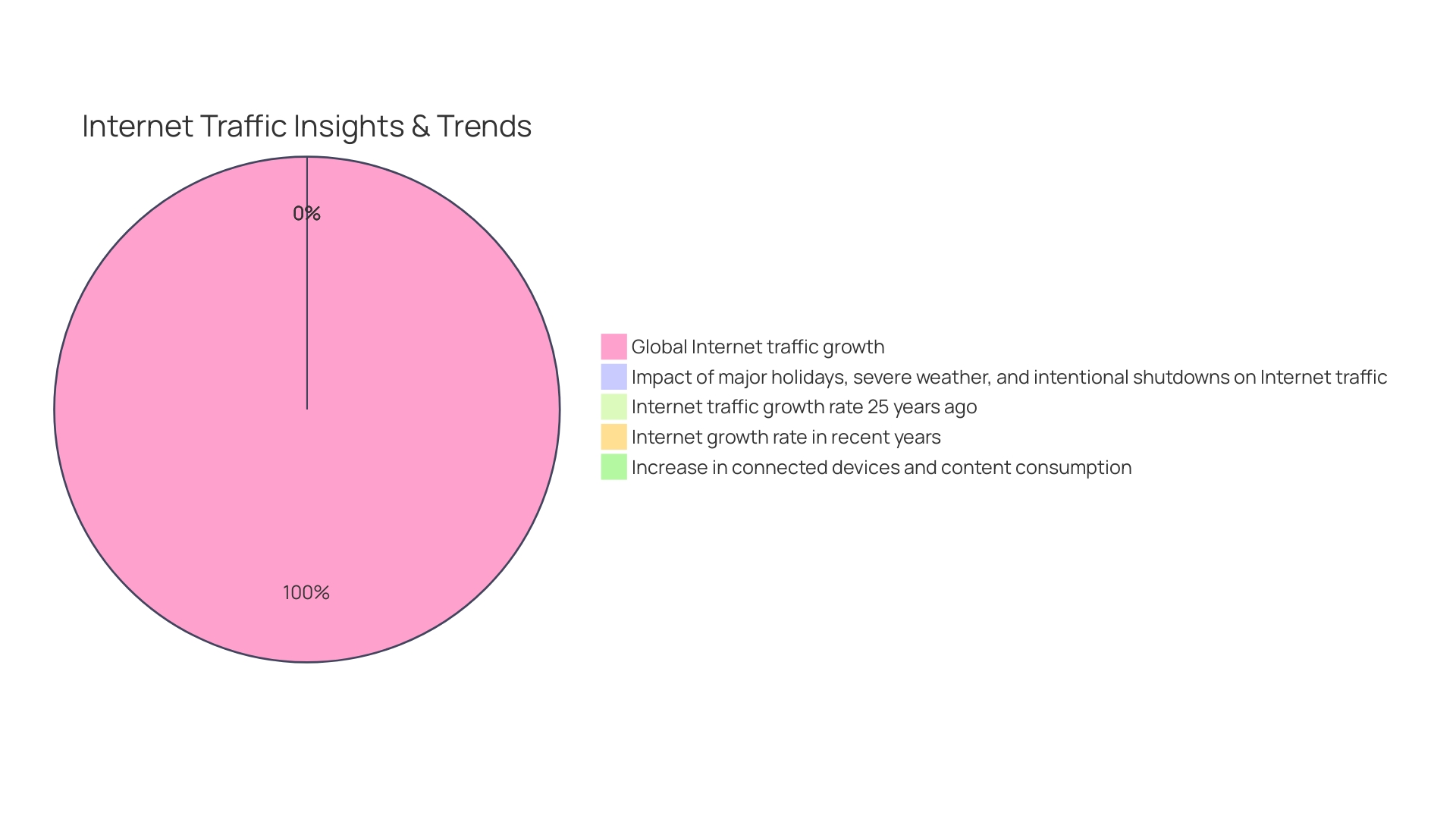
Case Studies and Success Stories
The dynamic landscape of network security presents various challenges for organizations, which often include managing cost escalations and ensuring the seamless delivery of services. Wowza's experience stands as a testament to the volatility in the industry, where an acquisition led to substantial, unforeseen cost increases for their customers, highlighting the potential risks of self-managed solutions. This pivot point created an opening for managed service providers to demonstrate the value of their offerings.
A case in point is Ceeblue, a managed live-streaming service provider, which helped a transitioning customer move from self-managed servers to its managed services. The transition not only smoothed out the delivery of high-quality, real-time video content but underscored the efficacy of managed services in handling such complex operations.
On a broader scale, global entities like IHG Hotels & Resorts are recognizing the value of integrating managed services into their operations. By adopting a managed software-defined wide area network (SD-WAN) solution from Fortinet, IHG anticipates not only substantial cost savings but also enhanced efficiency due to the consolidation of networking and security functions.
These narratives are bolstered by the minimal downtime and efficiency of security management that managed firewall services offer. Changing firewall policies across numerous devices can now be accomplished in mere minutes, a process that once took an entire day, and without the need to expand the security team significantly.
In the context of industrial production, the fusion of Level 3 and Level 4 networking through managed services has led to improved security management and visibility. Manufacturers now have the tools to better identify potential threats across their networks, which include thousands of devices and employees.
The agility of managed firewall services is further exemplified by the way Fortinet's solutions seamlessly communicate with each other, a feature that provides comprehensive protection and operational oversight that was previously lacking. This integration has instilled confidence not only in the IT teams but also in the management and board levels, ultimately safeguarding customer data more effectively.
The consolidation of services under managed firewall providers is becoming a strategic advantage, as it allows for rapid response to threats, streamlined operations, and a more robust defense against cyber risks. As the firewall as a service market continues to evolve with new players and partnerships, the emphasis remains on developing innovative and integrated solutions that cater to the needs of today's complex network environments.
Choosing the Right Managed Firewall Provider
Ensuring optimal network security necessitates careful selection of a managed firewall service provider. Critical factors to consider include the provider's ability to meld advanced technology with comprehensive expertise, as well as its reputation for delivering robust protection. Scalability is another paramount consideration, as it ensures that the firewall services can grow alongside an organization's evolving needs without compromising security. Service level agreements (SLAs) are equally crucial, defining the standards for service quality and reliability, response times, and remedial actions in the event of service disruptions.
For instance, large-scale hospitality entities, such as IHG Hotels & Resorts, have demonstrated the importance of integrating high-performance firewall solutions with broader network management strategies. By transitioning to a managed SD-WAN solution, IHG not only streamlined its operations but also enhanced network security across its global network. The implementation of Fortinet's tightly integrated security solutions resulted in significant cost savings and operational efficiencies, highlighting the value of selecting a provider with a robust technological ecosystem.
In educational environments, where the protection of student and administrative data is paramount, choosing a provider with a proven track record of addressing the unique challenges posed by the sector is essential. Providers must offer solutions that are not only comprehensive but can also adapt to the changing landscape of cyber threats.
From a technology perspective, firewalls act as a critical defense mechanism, monitoring and controlling network traffic based on established security rules. They provide a barrier that protects trusted internal networks from untrusted external ones. With the diverse implementation methods available—hardware appliances, software applications, or hybrid approaches—the choice of firewall solution must align with an organization's specific requirements.
The landscape of cybersecurity is evolving rapidly, with spending on cybersecurity outpacing general IT expenditures. This trend underscores the urgent need for organizations to invest in effective cybersecurity measures, such as managed firewall services, to safeguard their assets in an increasingly digital world. As the 2024 Gartner Magic Quadrant for SSE suggests, security and risk management leaders should leverage such research to identify vendors capable of securing access to the web, cloud services, and private applications, ultimately ensuring robust and versatile network security.
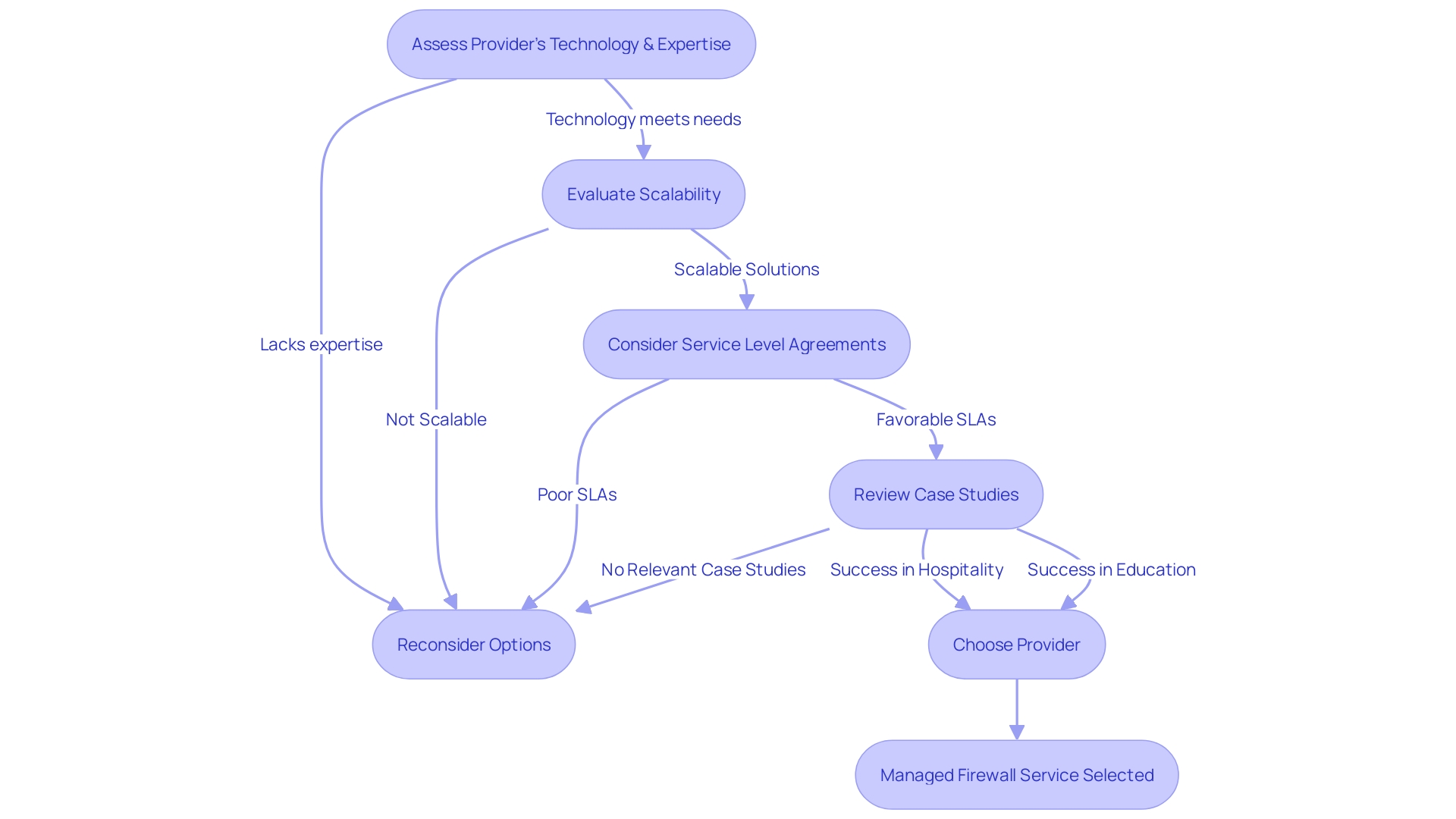
Best Practices for Implementing Managed Firewall Services
Effective implementation of managed firewall services is paramount for safeguarding an organization's digital assets. To begin with, a thorough assessment of security requirements is essential. This includes understanding the specific threats an organization may face and the level of protection needed. Defining clear objectives for the firewall implementation helps ensure that the services align with the organization's overarching security strategy.
Open and clear communication channels between IT teams and service providers are crucial for successful firewall management. This fosters a collaborative environment where potential issues can be rapidly identified and addressed. Moreover, regular reviews and updates of firewall configurations and policies are necessary to adapt to the evolving cyber threat landscape. It is important to consider that the increasing sophistication of cyber-attacks demands a real-time response capability, which many traditional setups may lack.
The recent experiences of companies such as Wowza underscore the importance of managed services. Organizations that had relied on Wowza for online video solutions were hit with unexpected service mark-ups, highlighting the value of partnering with a managed live-streaming service provider to ensure predictable costs and service stability. Transitioning to managed services, as demonstrated by a Ceeblue customer's move from self-managed servers, can lead to significant improvements in service quality and reliability.
Furthermore, as Gartner predicts a surge in containerized software deployment at the physical edge, managed firewall services must be equipped to handle these new technologies efficiently. The integration of solutions like K3s into firewall services can provide the necessary orchestration technology to manage containers effectively, even in resource-constrained environments.
One of the greatest challenges organizations face is the risk of misconfigurations in their security systems. Managed firewall services can mitigate this risk by providing centralized control over security policies and configurations. This ensures consistency across the organization's network and reduces the potential for human error that could lead to security breaches.
In conclusion, the implementation of managed firewall services is not just about deploying technology; it is about creating a dynamic and responsive security posture that can protect an organization's valuable assets in an ever-changing threat environment.
Conclusion
Managed firewall services revolutionize network security and operational efficiencies by leveraging specialized providers. They offer advanced threat detection, real-time monitoring, and user-friendly interfaces for simplified management. These services optimize resource allocation, enhance compliance, and provide cost-effective solutions.
The adoption of managed firewall services brings numerous benefits. Organizations can outsource network monitoring, cybersecurity, and technical support, allowing them to focus on core competencies while benefiting from advanced technologies. These services offer rapid response mechanisms, ensuring real-time defense against evolving threats.
Automated policy management and optimization reduce risks and improve overall security posture.
Managed firewall services increase productivity by minimizing downtime for critical security devices and enabling efficient management of systems and endpoints. Customized security solutions provide a seamless blend of protection and performance. Advanced technologies like AI, ML, and next-generation firewalls strengthen defenses against complex cyber threats.
Selecting the right managed firewall service provider is crucial. Factors to consider include technological expertise, scalability, and service level agreements. Implementing best practices, such as assessing security requirements and maintaining clear communication channels, ensures a dynamic and responsive security posture.
In conclusion, the strategic implementation of managed firewall services offers improved security, cost savings, and operational efficiencies. Organizations can navigate the evolving digital landscape, protect valuable assets, and comply with regulations. Choosing the right provider and following best practices ensures a secure and resilient network infrastructure.
Managed firewall services are a vital investment for organizations seeking robust protection and streamlined operations.




